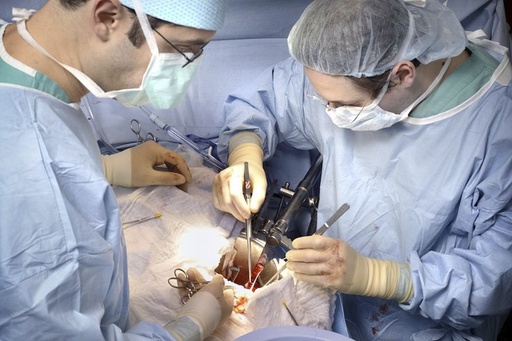
A recent extensive study indicates that individuals living with HIV can safely receive kidneys from deceased donors infected with the virus. This discovery comes at a vital time as the U.S. government aims to broaden the practice, which could ultimately reduce the organ waiting time for everyone, regardless of their HIV status.
Published in the New England Journal of Medicine, the study examined 198 kidney transplants across the United States. The findings showed that the outcomes were similarly favorable whether the kidneys were sourced from HIV-positive or HIV-negative donors. The research emphasizes the effectiveness and safety of this transplantation approach.
Last month, the Department of Health and Human Services suggested revising regulations that would permit kidney and liver transplants from HIV-positive donors beyond research settings. The proposed changes would extend to both living and deceased donors, with the potential to take effect as early as the next year, pending final approval.
Participants in the study were all HIV positive, experiencing kidney failure, and they consented to receive a kidney from either an HIV-positive or HIV-negative deceased donor, depending on availability. The researchers monitored the recipients for up to four years, comparing those who received organs from HIV-positive donors with those who received organs from donors without the virus.
Overall, both groups exhibited similarly high survival rates and low instances of organ rejection. Notably, some patients from the HIV donor group experienced a rise in viral levels, mainly linked to irregular intake of their HIV medications. However, in every case, the virus levels reverted to low or undetectable measurements.
Dr. Dorry Segev of NYU Langone Health, who contributed to the study, remarked on the positive implications of these transplants, highlighting their safety and outstanding results.
The first demonstration of the safety of using organs from HIV-positive donors for recipients with the same condition occurred in South Africa in 2010. However, it wasn’t until 2013 that the U.S. lifted its ban on the practice, allowing for research studies, following advocacy from Dr. Segev. Initially limited to deceased donors, the first living donor kidney transplant involving an HIV-positive individual took place in 2019 at Johns Hopkins University in Baltimore.
To date, approximately 500 transplants involving kidneys and livers from HIV-positive donors have been conducted in the United States. Carrie Foote, a sociology professor at Indiana University, noted that people with HIV tend to be dissuaded from registering as organ donors due to societal stigma and antiquated laws that criminalize such donations.
Foote, who is HIV positive and a registered organ donor, emphasized the dual benefit of these transplants: they not only assist those living with HIV but also increase the availability of organs for all patients awaiting transplants. She referred to this as a beneficial development for the entire community.
Currently, the U.S. Organ Procurement and Transplantation Network indicates that over 90,000 individuals are on the waiting list for kidney transplants, with more than 4,000 dies in 2022 while awaiting organs.
In a related editorial, Dr. Elmi Muller from Stellenbosch University in South Africa noted that the findings of this study could have significant implications for countries that have yet to embrace transplantation from HIV-positive donors. Muller, a pioneer in this medical practice, emphasized the importance of moving towards fairness and equity for individuals living with HIV.
